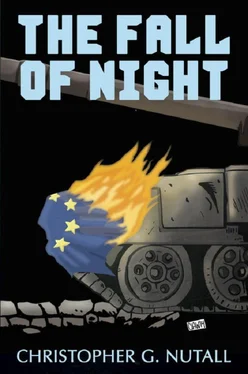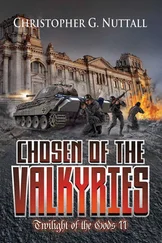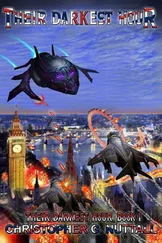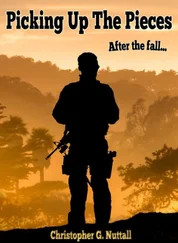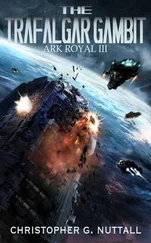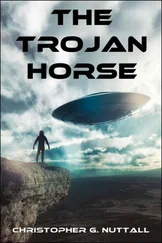Tom Kratman
Near Dover, United Kingdom
Dover was burning.
General Aleksandr Borisovich Shalenko stood near the city and watched as the handful of British prisoners were rapidly searched, secured, and inspected by the FSB security detachments. Dover itself had been seriously damaged by the fighting, but the combat engineers were certain that they could repair the damage in a few weeks with enough labour, assuming that it could be found. There were thousands of dockworkers back in Europe who had taken money from the Russians; they could be shipped over as soon as a ship could be spared. For the moment, however, they had recovered enough of Folkestone to use it as a harbour and expand their control rapidly.
Another aircraft flew overhead, carrying supplies for the invasion force, as Shalenko turned to face the FSB commander, FSB Colonel Maliuta Vladimirovich Stepanov. His parents had been extreme Russian nationalists — both of them had worked for the KGB before it had converted itself into the FSB — and it showed in his name; Maliuta was a very rare name in Russia. His position within the FSB had been almost hereditary; he handled matters that were only spoken of in whispers, even by other FSB detachments.
Shalenko spoke first, unwilling to even suggest that they were equals. “Who is the senior surviving British officer?”
Stepanov bowed his head slightly. The FSB might be convinced that it was superior to the Russian Army, but a bad report from General Shalenko would have his career being rapidly reduced to a filing clerk somewhere in the Kremlin, if not being stripped of rank and sent in disgrace to Siberia. Some people had to run the labour camps, after all, and while there were plenty of brutes around, the hard work of administration needed talented — and disgraced — officers.
“That would be a Colonel Harris,” he said, inspecting the terminal he carried in his hand. “We did recover a living General officer, but he died of his wounds soon afterwards; Colonel Harris is the only reasonably intact senior officer.”
“Take me to him,” Shalenko ordered shortly. He would find out if the General had died of his wounds, or if he had been helped; he had given orders that no prisoners were to be killed unless there was no hope at all that they would survive. The intelligence network within Britain had been severely damaged by the war and then by the invasion; even the most blind of the useful fools might see that there was something not quite right going on. The active spies and agents wouldn’t have the type of access they needed to know what the British intended. “What condition is he in?”
“Battered, but unbowed,” Stepanov said. There was a dispassionate note to his voice that chilled even Shalenko, even though he understood the requirement; he would almost have preferred a brute. A lot of brutes ended up in the FSB; a supply of victims and permission to do whatever they liked to them worked wonders for loyalty. “He was unlucky; we managed to knock him out in a bombing run and snatched him up before he recovered.”
Colonel Harris was a massive black man; he was so black that Shalenko had trouble looking him in the face, his face scarred by the force of the impact that had knocked him out. Stepanov’s men had already gone to work; he sat naked in a chair, various instruments of torture already attached to different places on his body, although they hadn’t started serious work yet. There was the hope that he would be reasonable; an American-designed lie detector electrode had been attached to the side of his shaven skull. He would have been a terror as a Drill Sergeant, Shalenko realised; it was a pity that he was on the wrong side.
He looked up as they entered. “Who… the hell are you?”
“I am General Shalenko, Commanding Officer of this Invasion Force,” Shalenko said, without bothering with preamble, or justifications. They were both soldiers; only politicians would bother coming up with justifications for whatever they wanted to do anyway. “I require some information from you.”
He made a mental bet as to what Harris would say first and won it. “This treatment is illegal under the Geneva Convention,” he said, through gasps. There had to be some damage somewhere, even if Stepanov had thought he was unharmed; he looked as if he was going to be stubborn. “I am a legal combatant and…
“Well, perhaps,” Shalenko said. “But you and I… we are both soldiers. We both know that sometimes you have to do things that you don’t want to do, or that you know you will face the opinion of international talkers, or… things that your political leaders will disown you for, if they find it convenient to do so. Neither of us chose this war” — a half-truth at best — “and we do not want to fight it, but we have no choice. Having no choice… I will do whatever I can to ensure that my soldiers come through the fighting safe.”
He paused. “Will you answer my questions?”
“Fuck you,” Harris said. “I know the drill; it’s only name, rank and serial…”
One of the FSB goons punched him in the chest. “We have to remain confined to reality,” Shalenko said shortly, as Harris gasped for breath. “The blunt truth is that your countrymen are in no position to avenge whatever happens to you… and institutions like the International Criminal Court have been shut down permanently now that we have occupied Brussels. There is no power on Earth that will punish us for carrying out our duty.”
Harris glared up at him, sweat forming on his black face. “Don’t blame me when Russian soldiers start turning up with their balls cut off and stuffed in their mouths,” he sneered. “Bring on your hired goons and let’s see how far they can go.”
Shalenko had to smile. “Do you know,” he asked, “who these men are? Some of them are people who learned suffering from the Chechens, or others from Central Asia; some of them are actually Kazakhs who were more than willing to lend their services to the FSB. I think they were sick of western hypocrisy, myself; some of them even brushed into British forces in Afghanistan. Now, you can be as stubborn, and heroic , and storoic and many more words ending in oic that I can’t be bothered to think of right now, but… eventually you will break and tell me everything you know.”
He leaned closer. “Talk now and I promise you that I will spare you and your men,” he said. “I have the authority to let them live, and even to spare them Siberia; all you have to do is talk now and spare yourself some pain.”
“You’ll have to get it out of me,” Harris hissed. “Bring it on.”
Shalenko stepped out of the tent as Stepanov’s men started their grizzly work, some of them enjoying it, some of them as dispassionate as Stepanov himself about their task. He would have preferred to have dumped them all into a penal unit and sent them clearing minefields until they died, but that wasn't an option; they were unfortunate, but necessary. Torture worked, given enough time; it had saved too many lives to allow it to be thrown away.
“General,” Anna said. Shalenko lit the cigarette she offered him and watched the smoke gusting away into the night air. They were in enemy territory, the one country in Europe that had had the time to get into position to give them a fight, and the loss rate showed that; thousands of Russians had died in a day of hard fighting. “I have the final figures.”
Shalenko listened as she went through them, detailing deaths, units lost, some of them lost on transports before they had ever had the chance to get into battle, others scattered along the shoreline and slaughtered by British soldiers before they had a chance to collect themselves. The Russian Air Force had been hurt badly; over a hundred fighters had been lost, along with seventy bombers and transports. Civilian airliners would have to be pressed into service again to speed the process of consolidation; they had to build up again before the British gathered themselves and counterattacked.
Читать дальше
